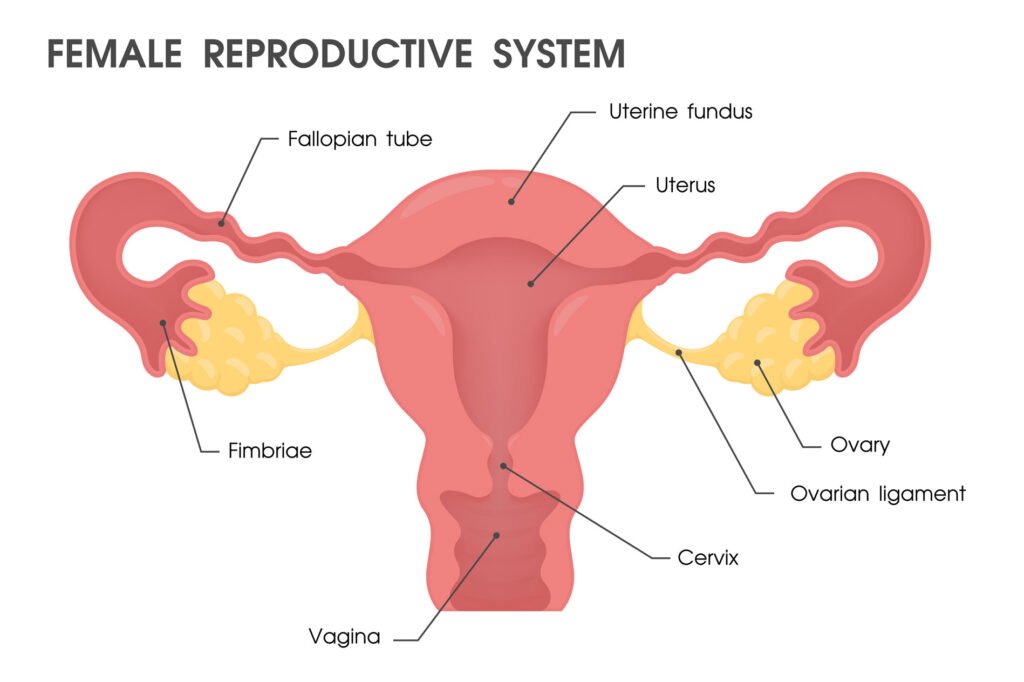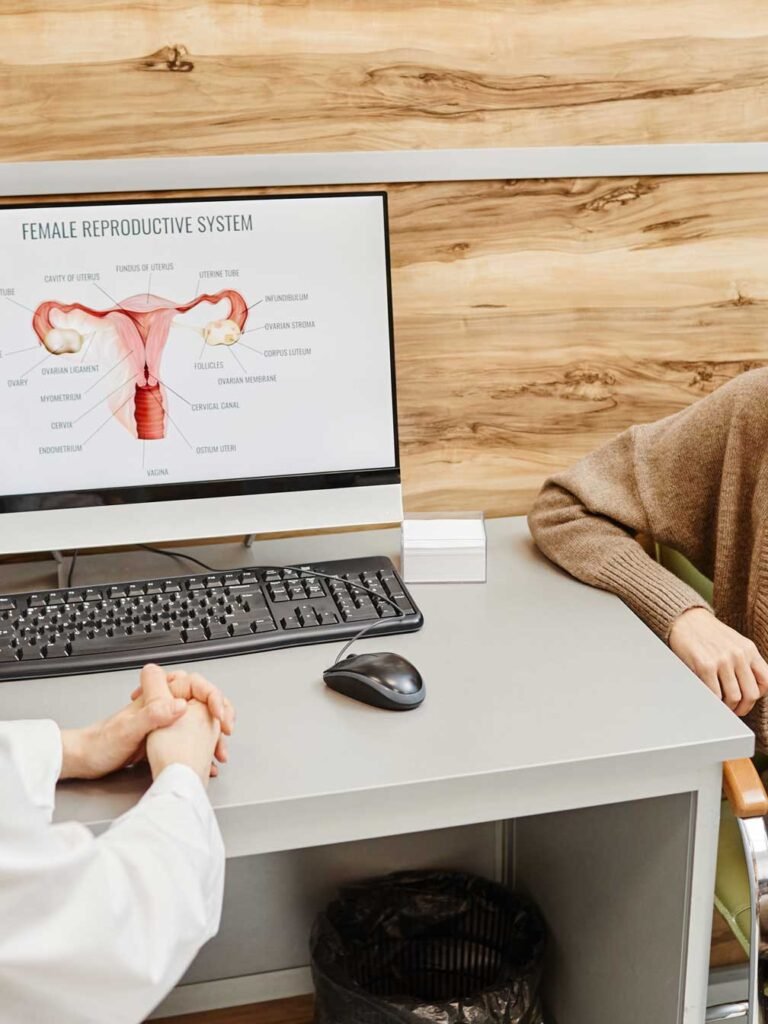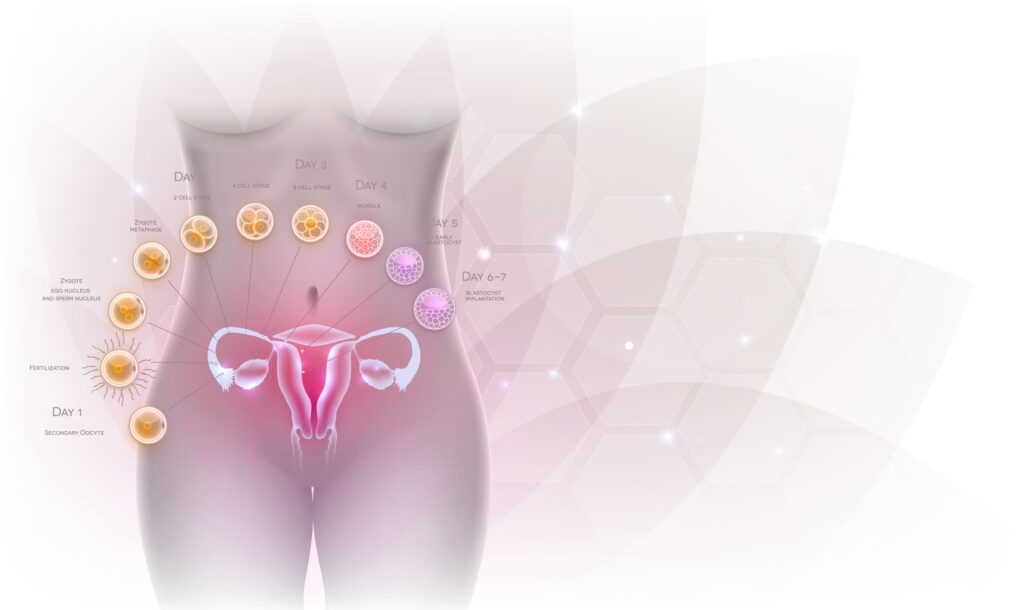- Home
- Blogs
- Female Reproductive System: Structure & Function

Understanding the female reproductive system is essential for everyone, especially teenagers. It’s important to know how your body works so you can take care of your health. The female reproductive system includes both internal and external parts, each with unique functions. Let’s explore these in detail.

External Structures
The external parts, known as the vulva, include:
- Labia Majora: These are the outer folds of skin that protect the other external reproductive organs. They have sweat and oil glands to keep the area moist.
- Labia Minora: Located inside the labia majora, these are smaller skin folds that surround the vaginal and urethral openings.
- Clitoris: A small, sensitive bump that is important for sexual pleasure.
- Vaginal Opening: The entrance to the vagina, sometimes partially covered by a thin tissue called the hymen.
Internal Structures
The internal parts are more complex and include:
- Vagina: A muscular tube that connects the vaginal opening to the uterus. It serves multiple purposes: it’s where menstrual blood leaves the body, the birth canal during childbirth, and the passageway for sexual intercourse.
- Uterus (Womb): A pear-shaped organ where a fertilized egg can develop into a baby. It has two main sections:
- Body (Corpus): The main part of the uterus.
- Cervix: The lower part of the uterus that opens into the vagina.
- Fallopian Tubes: These tubes connect the ovaries to the uterus. They carry eggs from the ovaries to the uterus and are where fertilization usually happens.
- Ovaries: Two small glands located on either side of the uterus. They produce eggs and hormones like estrogen and progesterone.
Functions of the Female Reproductive System
The female reproductive system has several key functions:
- Egg Production and Release: The ovaries release an egg each month during ovulation.
- Hormone Secretion: The ovaries produce hormones that regulate the menstrual cycle and the development of female characteristics.
- Fertilization: The fallopian tubes are the site where an egg meets a sperm cell to become fertilized.
- Menstruation: If the egg is not fertilized, the lining of the uterus is shed during menstruation.
- Pregnancy and Childbirth: The uterus supports the development of a fertilized egg into a baby and contracts to help deliver the baby during childbirth.
The Menstrual Cycle
The menstrual cycle is a monthly process that prepares the body for pregnancy. It includes several stages:
- Menstruation: The shedding of the uterine lining, resulting in a period.
- Follicular Phase: The time between the first day of the period and ovulation. The ovaries prepare to release an egg.
- Ovulation: The release of a mature egg from the ovary.
- Luteal Phase: The period after ovulation when the body prepares for a possible pregnancy.

Taking Care of Your Reproductive Health
It’s important to take good care of your reproductive health. Here are some tips:
- Regular Check-ups: Visit a gynecologist for regular check-ups. These visits can help catch any problems early.
- Healthy Lifestyle: Eat a balanced diet, exercise regularly, and avoid smoking or excessive alcohol consumption.
- Safe Sex: Use protection during sex to prevent sexually transmitted infections (STIs) and unwanted pregnancies.
- Stay Informed: Learn about your body and how it works. Understanding your menstrual cycle and recognizing any changes can help you stay healthy.
Common Issues and Concerns
Understanding common reproductive health issues can help you recognize when something might be wrong. Here are a few to be aware of:
- Menstrual Cramps: Many women experience cramps during their periods. Over-the-counter pain relievers and certain exercises can help.
- Irregular Periods: Periods can be irregular, especially in the first few years. If they continue to be irregular, it’s a good idea to see a doctor.
- Infections: Vaginal infections can cause symptoms like itching, burning, and unusual discharge. If you have these symptoms, see a doctor.
- Polycystic Ovary Syndrome (PCOS): A common condition that can affect menstrual cycles, fertility, and hormone levels. Symptoms include irregular periods, weight gain, and acne.
Seeking Professional Help
If you have concerns about your reproductive health, it’s important to seek professional help. Dr. Maulik Shah at Lifeline Women’s Hospital and IVF Centre in Gota, Ahmedabad, offers expert care and advice. With over 15 years of experience, Dr. Shah can help you understand your body and maintain your reproductive health.
Conclusion
The female reproductive system is complex and vital for overall health. Understanding its structure and functions can help you take better care of yourself. Regular check-ups, a healthy lifestyle, and staying informed are key to maintaining good reproductive health. If you have any concerns or need professional advice, don’t hesitate to reach out to a trusted healthcare provider like Dr. Maulik Shah at Lifeline Women’s Hospital and IVF Centre in Gota, Ahmedabad. Your health is worth it!
Contact Details
Phone Number
- +91 97148 66044
Whatsapp Number
- +91 97148 66044
Email Address
- drmaulikjshah@yahoo.co.in
Office Location
- 3rd Floor , Shayona Tilak Near Vandematram New S G Road, Chandlodia, Gota, Ahmedabad, Gujarat 382481, India
